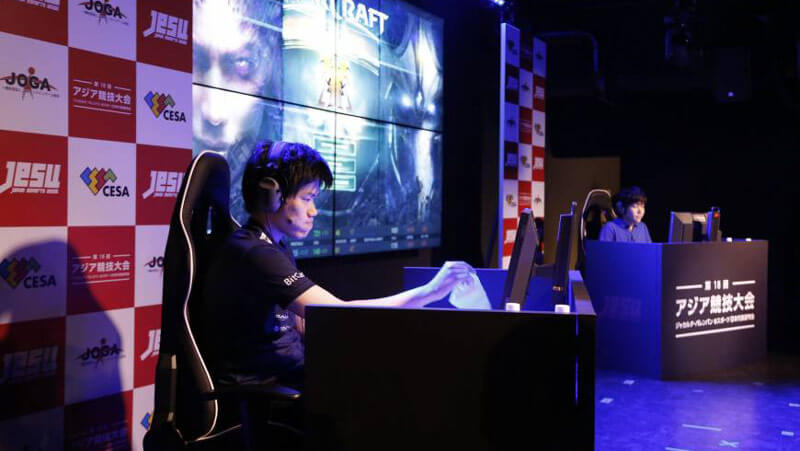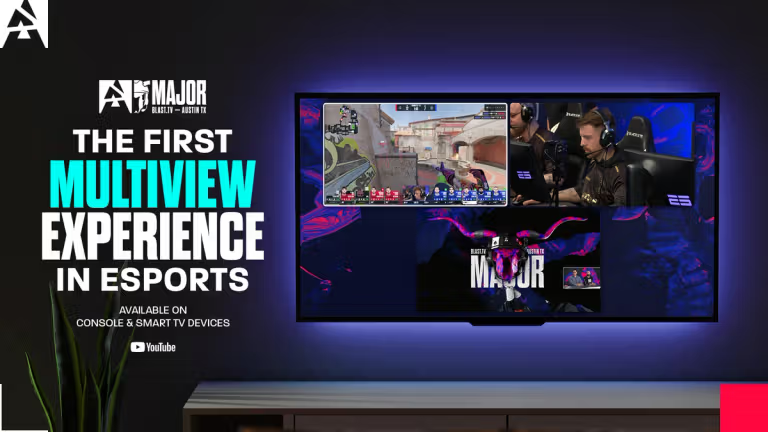
Japan’s esports market shows record growth
Whilst Japan has traditionally lagged behind its Asian rivals in its take-up of esports, it seems as though the nation is ready to join the competitive mobile gaming revolution. This is because the Japanese esports market showed a record thirteenfold growth in the past year with an impressive $42.5 million in revenues.

© JESU
The figures were released by the publishers, Gzbrain, and it also hints that this is just the start of the Japanese esports revolution. It has been estimated that the domestic esports market for esports could even reach a massive $88.2 million by 2022. Although competitive gaming is a global phenomenon, tight regulation over sports and entertainment in Japan has limited the growth of esports in the past. But with the legalisation of Japanese competitive gaming earlier this year, it seems that Japan could become a new esports superpower.
Why has Japanese esports boomed in the past year?
There is little denying the fact that the global esports scene is growing faster than anybody would have expected. The competitive gaming industry is expected to hit $180 billion by 2021, and it seems that nearly all nations are playing a part in its phenomenal growth. Whilst tight regulation previously inhibited the growth of competitive gaming in Japan, the government’s decision to legalise esports in February showed that this country is more than willing to follow global trends.
The Japan Esports Union was recently set up to issue licenses to the nation’s top gamers so that they could become professional esports players. There had previously been strict limits in regards to how much competitors could earn in any tournament that is linked to the promotion of a product. But thanks to the efforts of the Japan Esports Union, esports players can now look forward to winning much more than the relatively paltry $895 that was previously allowed.
But it’s the fact that Japanese gamers can now legally play on a competitive global stage that is the most exciting prospect. We were already given our first glimpse at competitive gaming Japanese-style when the Clash Royale League Finals took place in Japan (Tokyo) at the start of December. Whilst the Japanese entrants, PONOS Sports, had to settle for fourth place behind the eventual winners, Nova Esports, it showed that Japan is more than capable of hosting some of the most high-profile competitive gaming tournaments.
Understanding the slow growth of esports in Japan
Japan is a nation that has given the world more than its fair share of gaming heavyweights. With legendary games developers like Nintendo, Sega, Sony and Bandai Namco all helping to change the way that we enjoy video gaming, it seems as though the country would be spearheading the esports revolution.
However, the nation’s government had previously imposed very strict rules and regulations that limited the professional gaming scene. As a result, Japan’s gamers not only had to endure very little in the way of prize winnings, but they also faced a much smaller choice of tournaments to play in.

© Japan Esports Union
But with the establishment of the Japan Esports Union, there are bright hopes for the future. Already 115 players and eight Japanese esports teams have received a license to compete at the highest level. In addition to this, no less than 26 legendary Japanese gaming brands like Sony, Konami, Sega, Bandai Namco and Capcom have become members of the Japan Esports Union and so we can expect the nation’s competitive gaming scene to go from strength to strength.
Could Japanese gaming surpass its rivals?
Before we get carried away with the rapid growth of esports in Japan, it’s worth remembering that this nation has plenty of work to do before it catches up with nearby countries such as South Korea and China. South Korea is widely seen as being the nation that kickstarted the esports phenomenon, and their competitors are well known for their prowess in titles like League of Legends and Overwatch.
The Chinese government initially showed plenty of scepticism in regards to the popularity of esports. But it seems as though that has all changed as the country has given us many top esports teams like Kingzone DragonX, and have even invested in their own dedicated esports town in Hangzhou.
In many ways it seems as though Asian nations are showing the world how to take esports to the next level. The 2018 Asian Games saw esports being entered as a demonstration sport, and next year’s SEA Games 2019 in the Philippines will see esports being featured as a medal sport for the very first time. All of which shows that Japan’s decision to facilitate top-level competitive gaming couldn’t have come at a better time. And whilst it might be too late to include esports in the 2020 Tokyo Olympics, it seems that Japan is ready for its own esports revolution.












